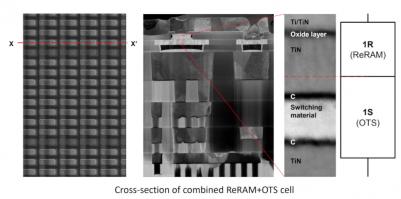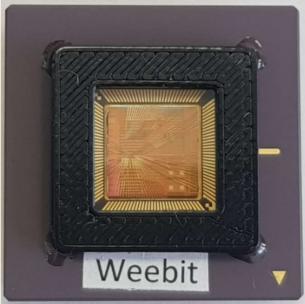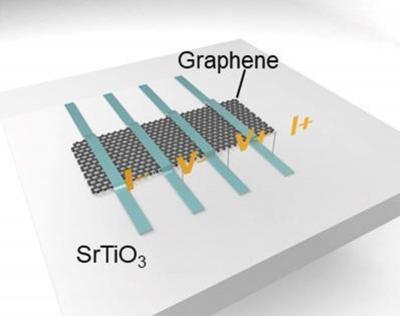Weebit Nano developed an ReRAM cell integrated with an OTS selector
Israel-based RRAM developer Weebit Nano announced that it has developed the world's first commercial integration of an oxide-based ReRAM (OxRAM) cell with an ovonic threshold switching (OTS) selector. Weebit says that this is a critical step in the company's commercialization path for the discrete (standalone) memory market (which they hope to achieve by 2024).

The selector is a key element in a memory chip as it enables optimized cell access within the memory array. Weebit developed the technology for the integration together with its development partner CEA-Leti. Weebit says that this technology will broaden its target market beyond embedded memory to include discrete memory technology. In future architectures, the company aims to implement 3D memory stacking and crossbar architectures.

